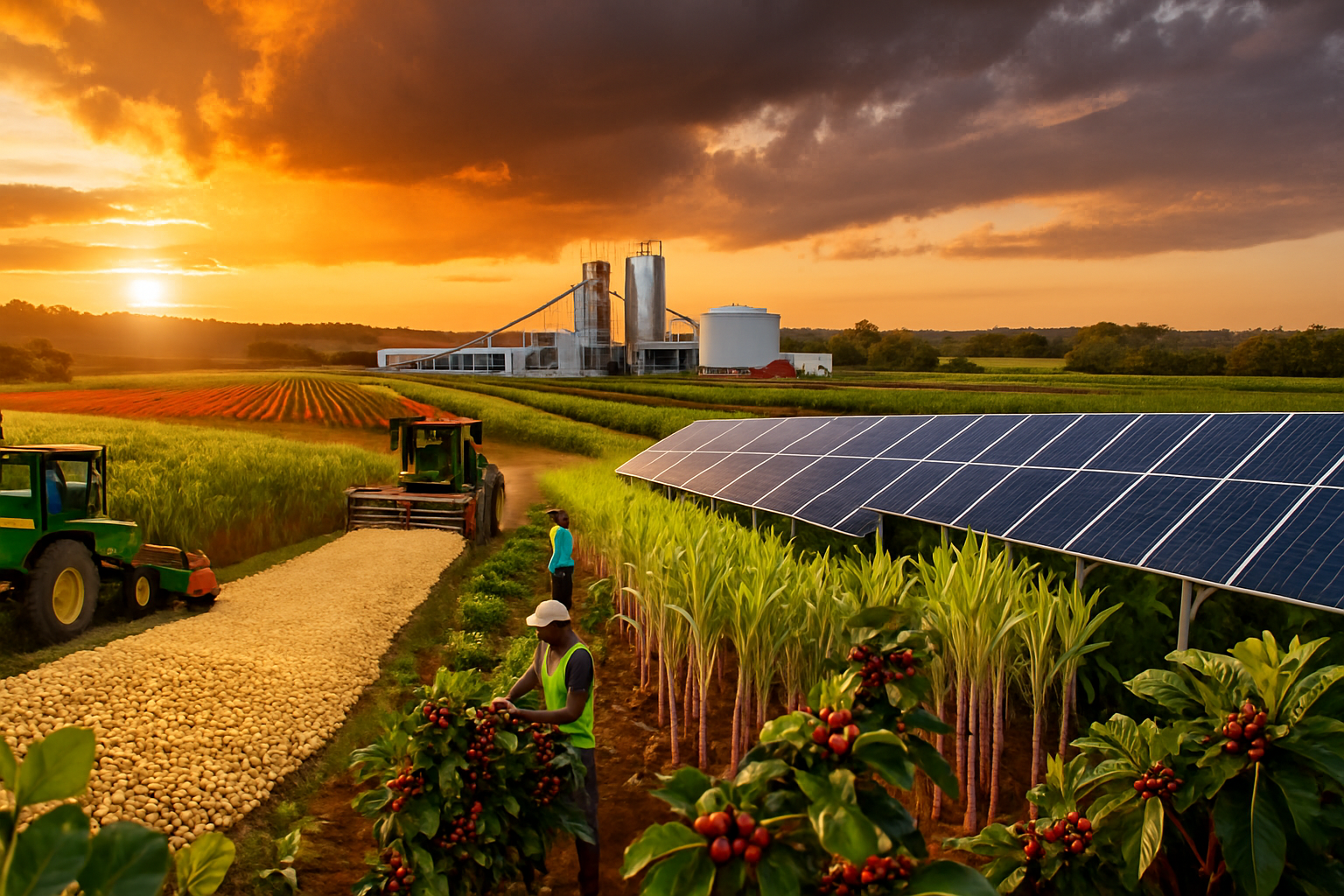Brazil’s Agronomic Significance: The Backbone of Global Food Security and Innovation
Brazil's role in modern agriculture extends far beyond being a leading supplier of bulk commodities; it is shaping the global food economy as a key standard-setter. From the ports of Shanghai to grain markets in Rotterdam, price fluctuations and supply chain decisions are often rooted in conditions across Brazil’s vast agricultural regions.
Spanning 8.5 million square kilometers, Brazil’s diverse climates—from the Amazonian tropics to temperate southern plains—support year-round cultivation of a wide variety of crops. Areas like the Cerrado, once considered marginal for farming, have been transformed into highly productive farmland through advances in soil science, including lime application, phosphorus amendments, and rotational cropping.
Soybeans and corn dominate Brazil’s agricultural influence. The country is the world’s top soy exporter, and the “safrinha” corn crop—grown after soybeans each year—maximizes land use efficiency. This double-cropping stabilizes feed markets globally, with weather patterns in regions like Mato Grosso or Paraná affecting livestock and poultry industries worldwide.
The sugarcane industry is another cornerstone of Brazil’s agribusiness, producing nearly a third of the world’s sugar and fueling one of the most advanced biofuel systems. Bagasse, a sugarcane residue, generates electricity while vinasse, rich in nutrients, recycles back to improve soils. These circular systems exemplify how large-scale biofuel production can significantly reduce carbon emissions.
Brazil also leads in globally recognized flavors and staples. Around 40% of the world’s coffee is produced here, ranging from bulk arabica to premium microlots. The beef sector supplies markets in Asia and the Middle East, and Brazil’s citrus groves supply over 70% of global orange juice demand. These sectors are vital for rural employment, foreign exchange earnings, and global food security.
Innovation drives Brazil’s success. The Brazilian Agricultural Research Corporation (Embrapa) has developed tropical-adapted soybeans, promoted no-till farming, and integrated crop-livestock-forestry systems that improve soil health and farm profitability. Precision agriculture tools like satellite monitoring, drones, and AI analyze planting and fertilization, shifting Brazil from a raw commodity exporter to an agronomic innovator influencing global practices.
Challenges remain, particularly related to deforestation, greenhouse gas emissions, and water use. Brazil is pioneering solutions such as zero-deforestation supply chains verified through satellite imagery, restoration of degraded pastures via agroforestry, and carbon credit programs that align economic returns with sustainability. These efforts are often requirements in contracts from European and Asian buyers to maintain premium market access.
Within Brazil, agribusiness accounts for over 25% of GDP and nearly 40% of export revenues. Investments in transportation and infrastructure driven by agriculture benefit entire regions, enhance rural welfare, and alleviate urban pressures.
Brazil’s development demonstrates the potential to rehabilitate degraded soils, sustain multiple annual harvests, and scale profitable renewable energy alongside food production. It also highlights how traceability and environmental stewardship are no longer burdens but competitive advantages essential to market leadership.
Brazil is a blueprint for the future of global farming: a blend of natural resources, rigorous science, and sustainable innovation. Its successes and evolutions guide farmers, investors, and policymakers worldwide amid intertwined challenges of climate change, population growth, and evolving consumer expectations.


